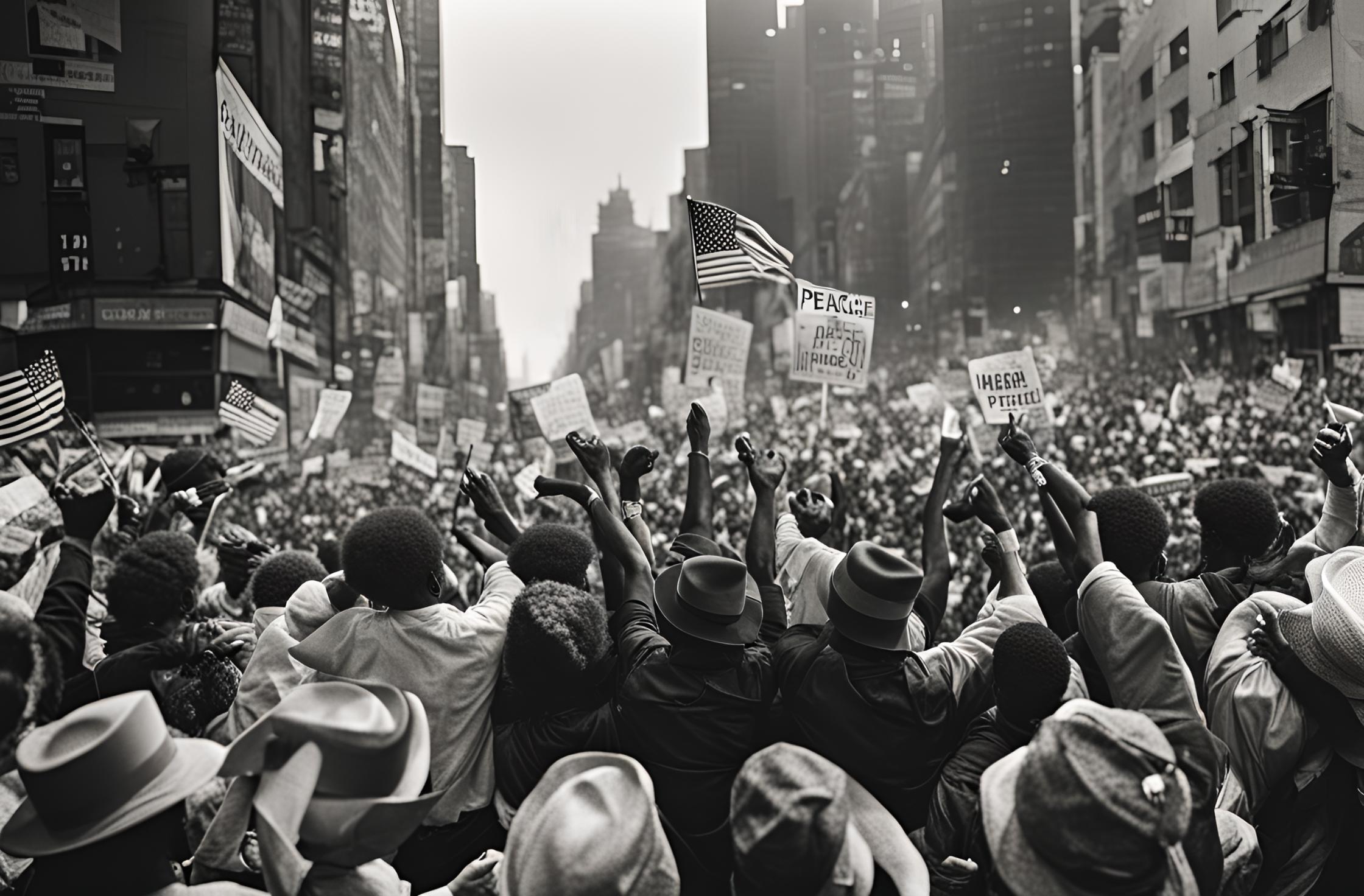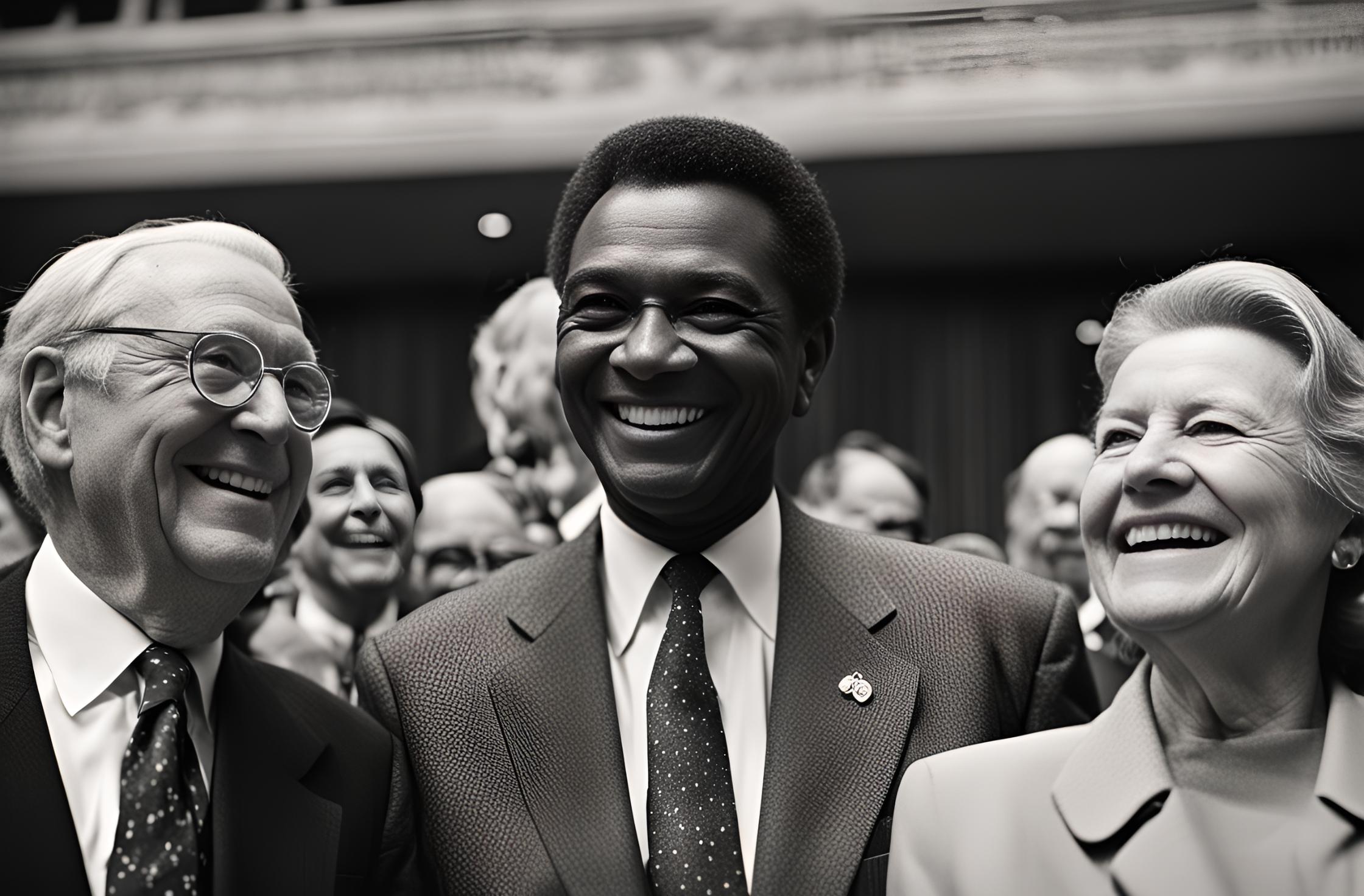
A powerful wave of applause engulfed the National Mall, resonating throughout Washington, D.C., as Dwayne “The Rock” Johnson was sworn into office. Surrounded by a diverse assembly of advisors and family members, Johnson—a former wrestler and Hollywood superstar—stood tall, physically and symbolically, in front of a nation yearning for hope.
Despite the jubilant atmosphere, an undercurrent of tension was apparent. The political landscape was marred by partisanship and discord. As an outsider stepping into the Oval Office, Johnson knew he was facing a steep challenge. But standing 6’5” and armed with the charismatic magnetism that had previously propelled his wrestling career, he wasn’t unfamiliar with adversity.
As his term progressed, President Johnson fostered a presidency characterized by transparency and directness. In his inaugural State of the Union address, he deviated from the teleprompter, addressing the nation not unlike a motivational coach inspiring a team on the edge of defeat. His rhetoric, although simple, was potent, leading to a resurgence of national pride and unity. His vow to “lay the smackdown on Washington dysfunction” was initially met with doubt, but in time, it became evident that it was more than just a catchphrase.

However, Johnson’s optimism did face trials. Crisis ensued when rumors spread that foreign hackers had penetrated critical national infrastructure systems. He called upon his national security team, which included Dr. Maya Leung, a cybernetic engineer and recent MIT graduate known for her innovative cyber-defense strategies.
Dr. Leung delivered a stern assessment—the hackers had breached the power grid and implanted malware inside systems responsible for coordinating emergency services. The possibility for chaos was immense. Recognizing the urgency for immediate and unconventional action, Johnson addressed the nation during primetime to explain the situation with characteristic honesty, urging Americans to trust in the strength of their institutions.
While measures were being taken to secure the cyber vulnerabilities, Johnson’s practical approach also extended to diplomatic solutions. He requested a confidential meeting with the leaders of the suspected country. At this high-stakes negotiation, Johnson, dressed in a tailored suit, faced seasoned diplomats. His presence was formidable, his message clear—he advocated for collaboration against collective threats rather than continued rift. Impressively, he was able to secure a preliminary cyber-peace agreement, spawning an international task force aiming to prevent future attacks.
Not all of Johnson’s challenges were foreign, though. At home, he faced stiff opposition to his ambitious “American Unity Project,” a plan to renew the country’s crumbling infrastructure while providing jobs for millions of unemployed Americans. His plan faced criticism from both political sides, being called either an expensive mistake or a thinly-disguised publicity stunt. Unfazed, Johnson conducted a nationwide tour, visiting economically-stricken towns and disaster areas. In each place, he physically worked alongside ordinary Americans, his empathy and hard work creating a deep connection.
As the project started to yield tangible results—new bridges replacing decrepit ones, schools reopening with up-to-date technology—public opinion began to swing. Johnson’s personal charm and direct involvement slowly converted skeptics into hesitant supporters. His talent for bridging political divides eventually became a defining trait of his leadership.

In his fourth year, a destructive hurricane devastated the Gulf Coast, putting his leadership to another critical test. A prompt, unified response from local and federal agencies, stemming from disaster preparedness drills mandated early in his term, highlighted an America more prepared for catastrophe than it had been in years. Johnson himself visited the severest-hit areas, providing both practical aid and emotional comfort, personifying the unity and resilience he had always advocated.
With the re-election up ahead, Johnson’s team braced themselves for the usual political smear campaigns. However, election night painted a different picture. Motivated by his unwavering dedication and clear accomplishments, Americans turned up to vote in unprecedented numbers. Johnson was re-elected by a landslide, signifying the public’s approval of the wrestler-turned-president.




